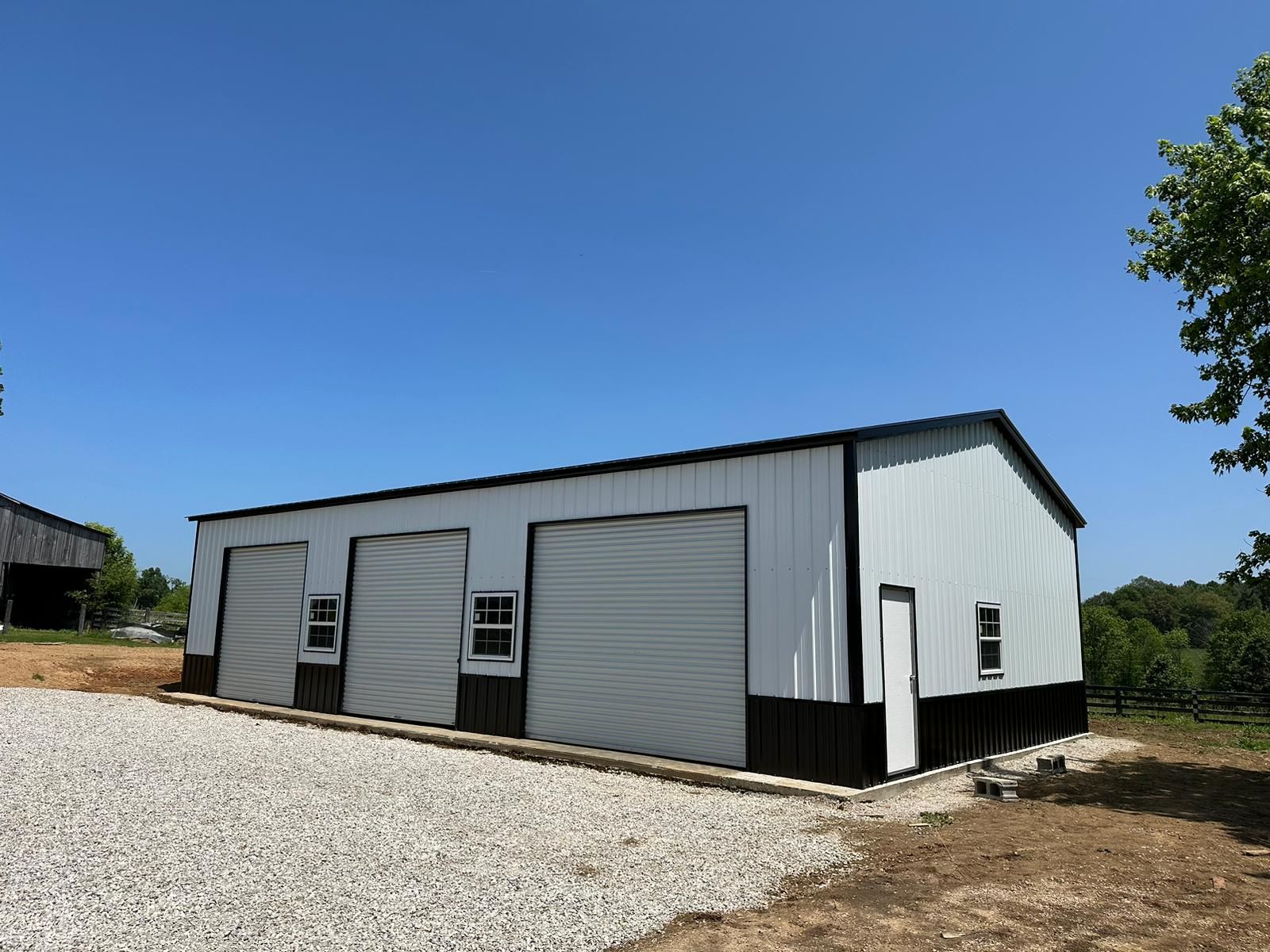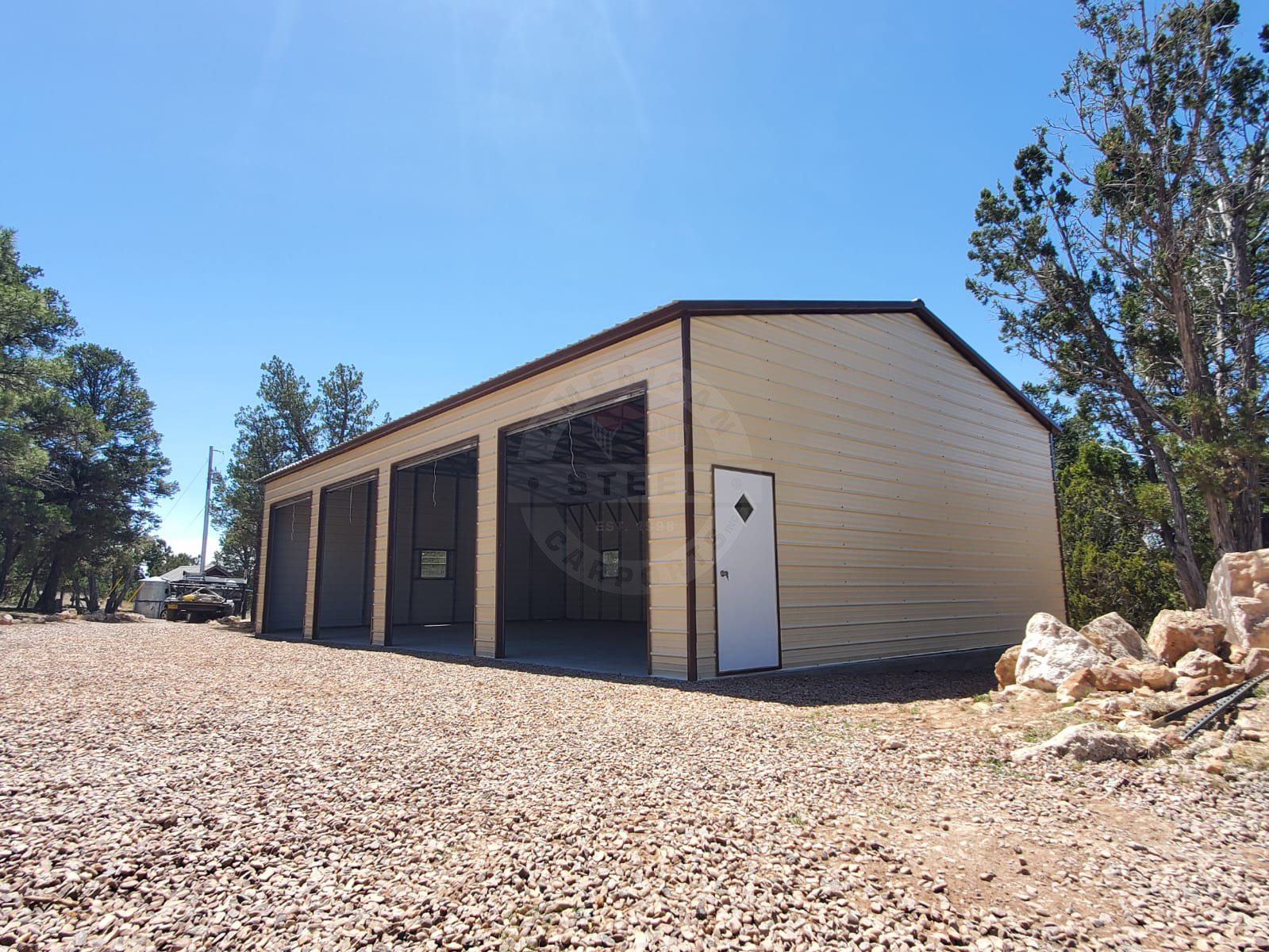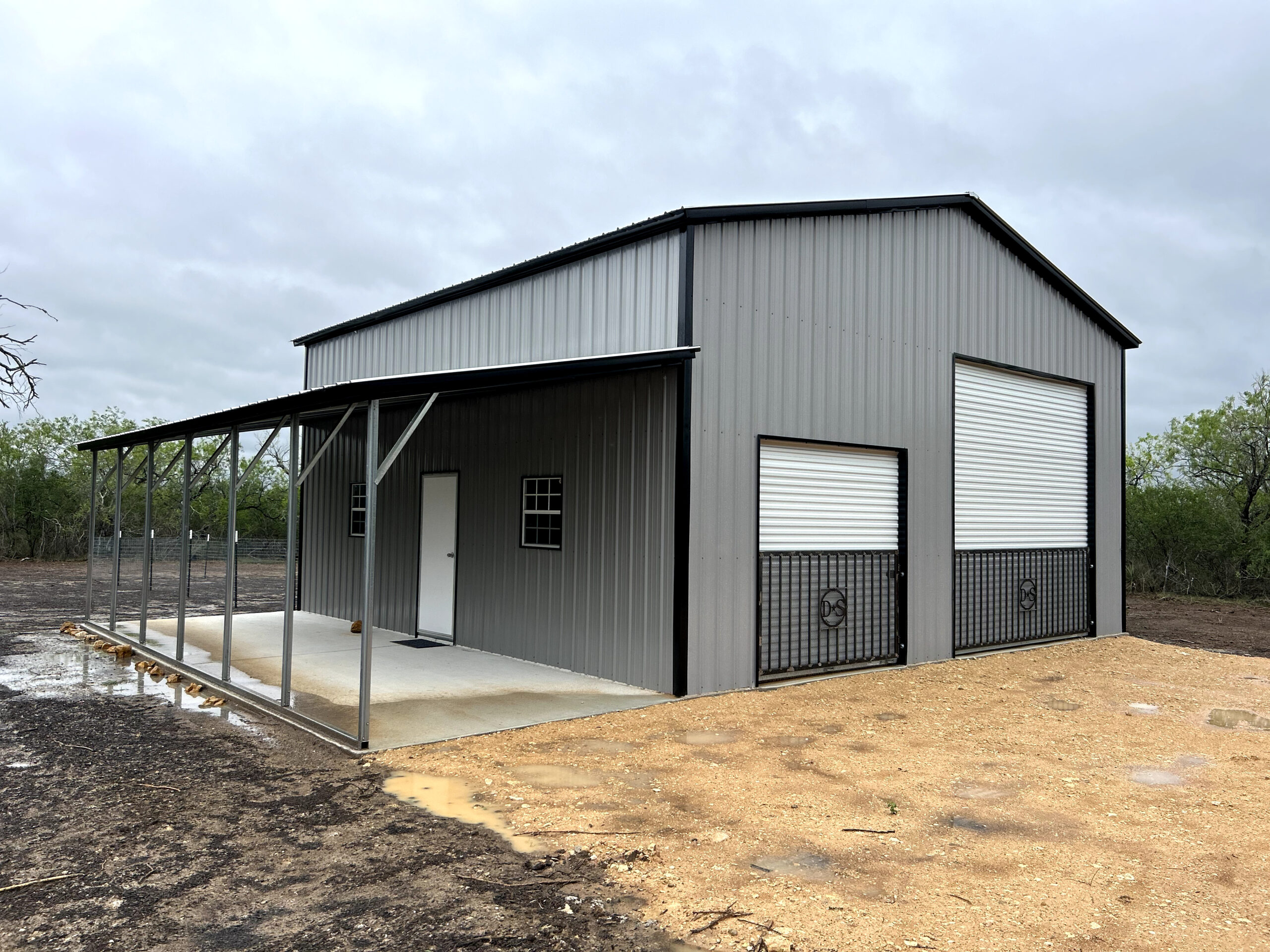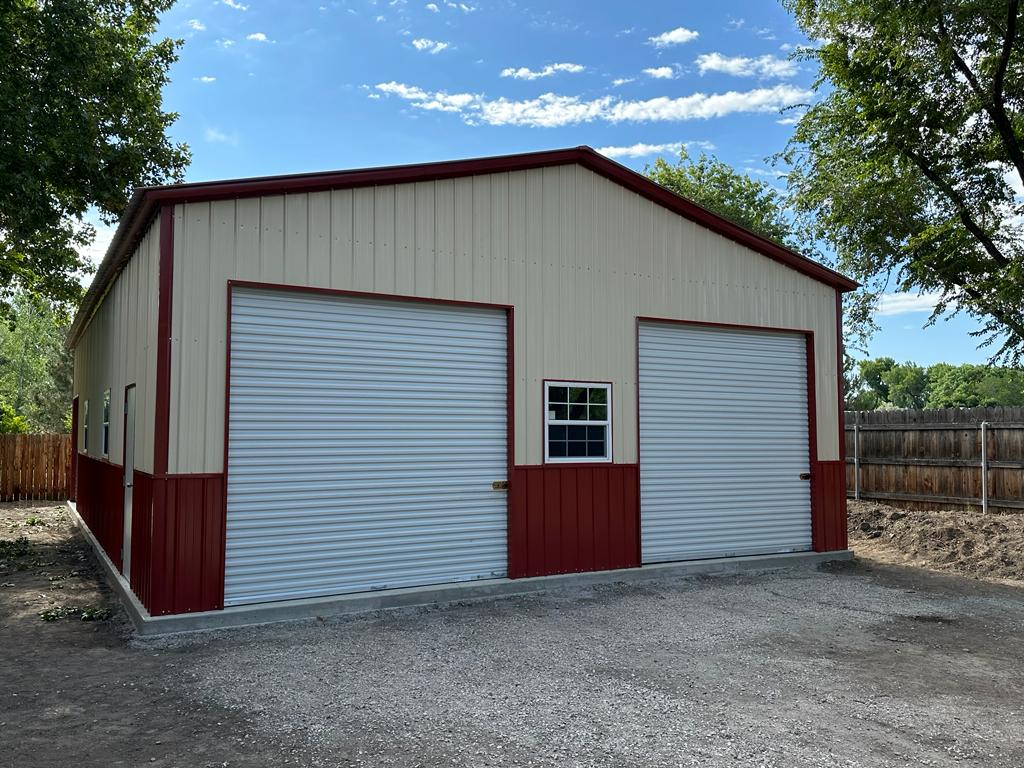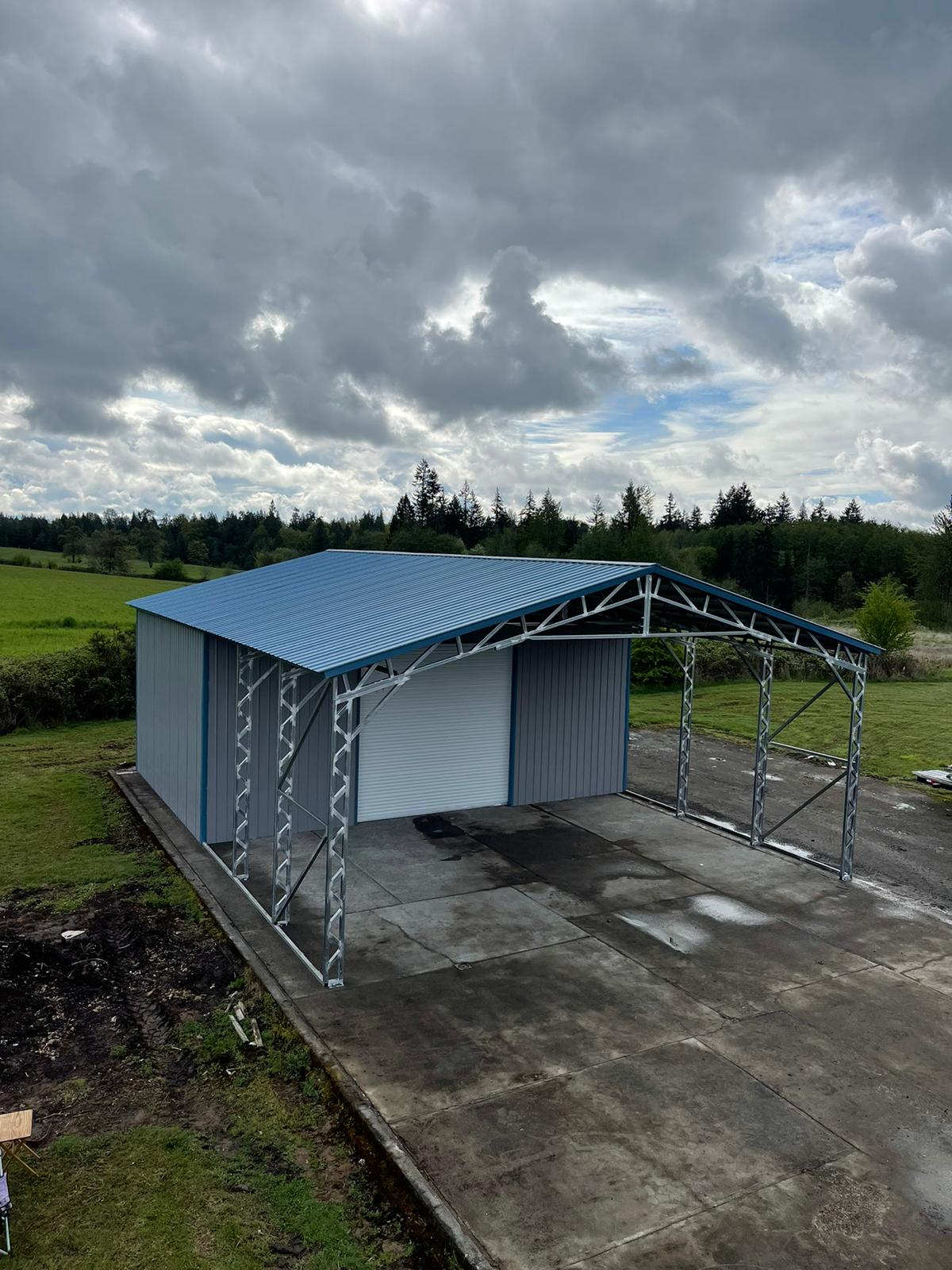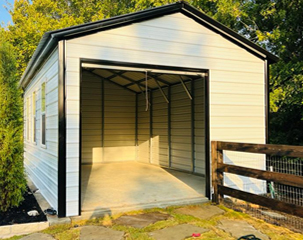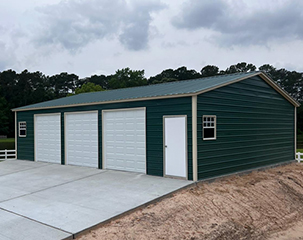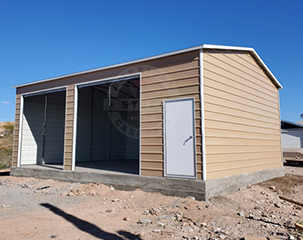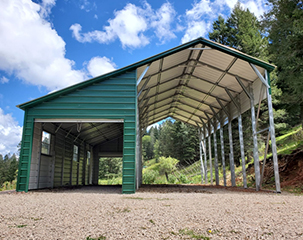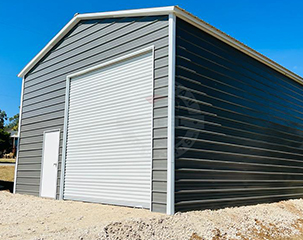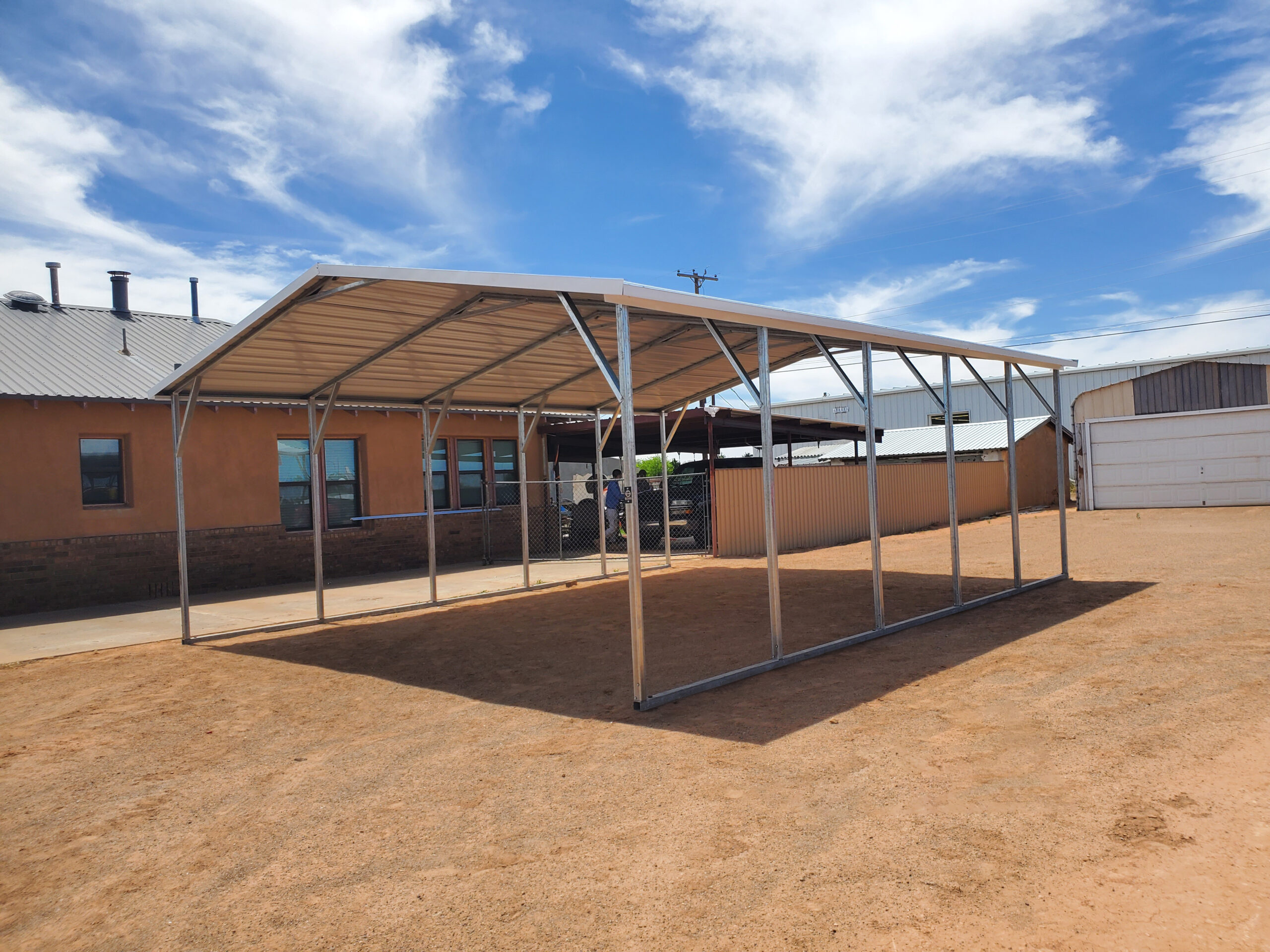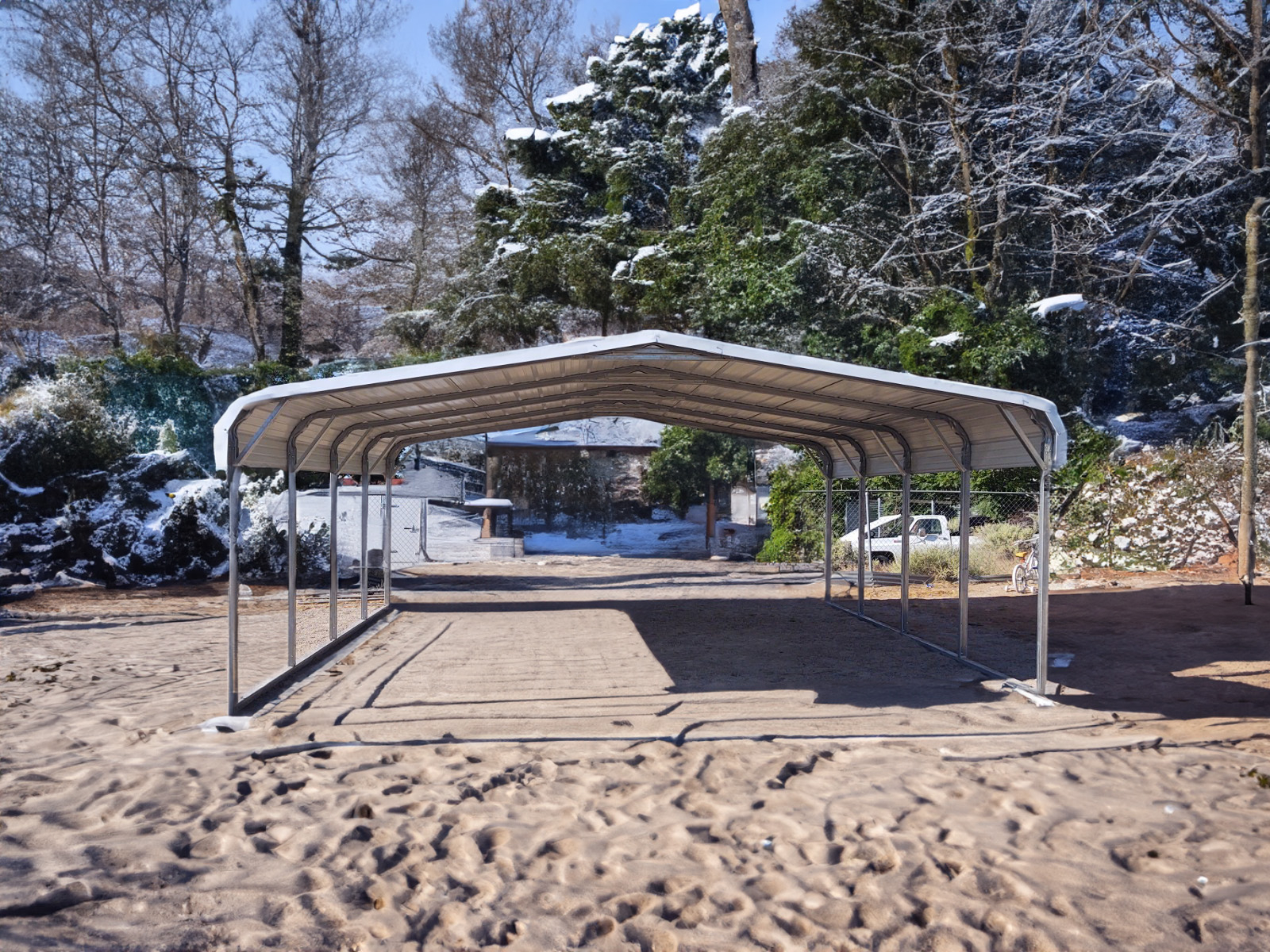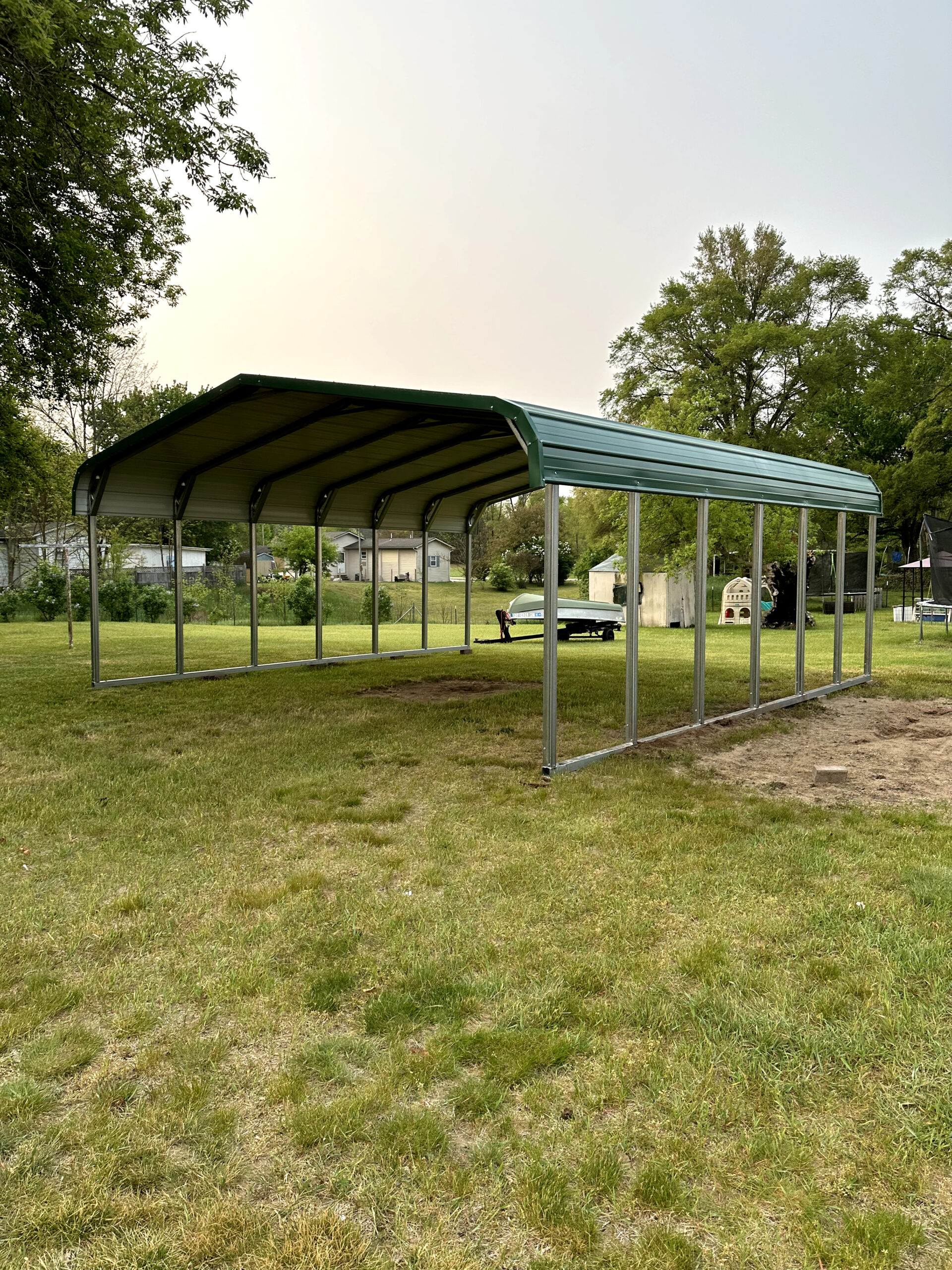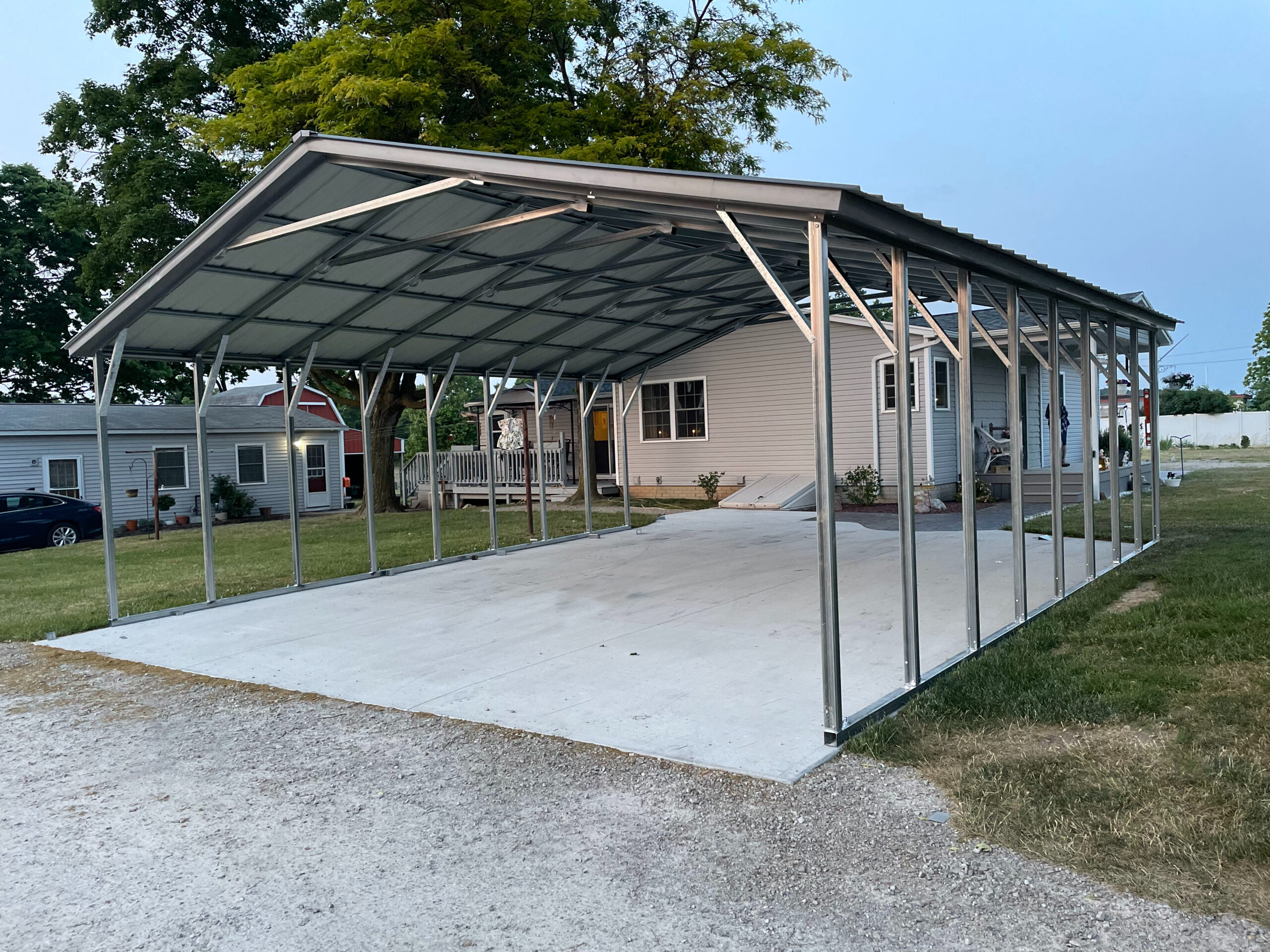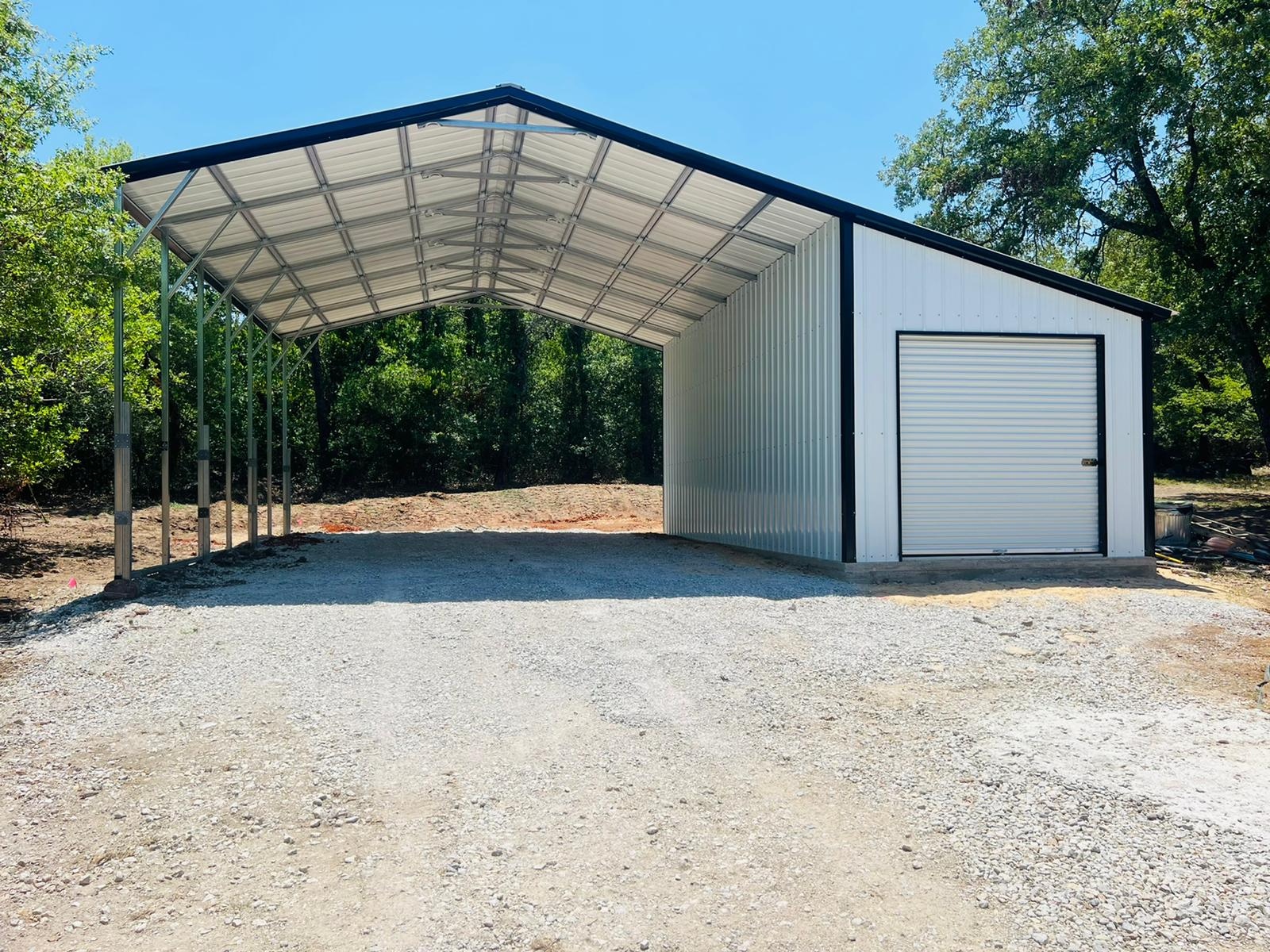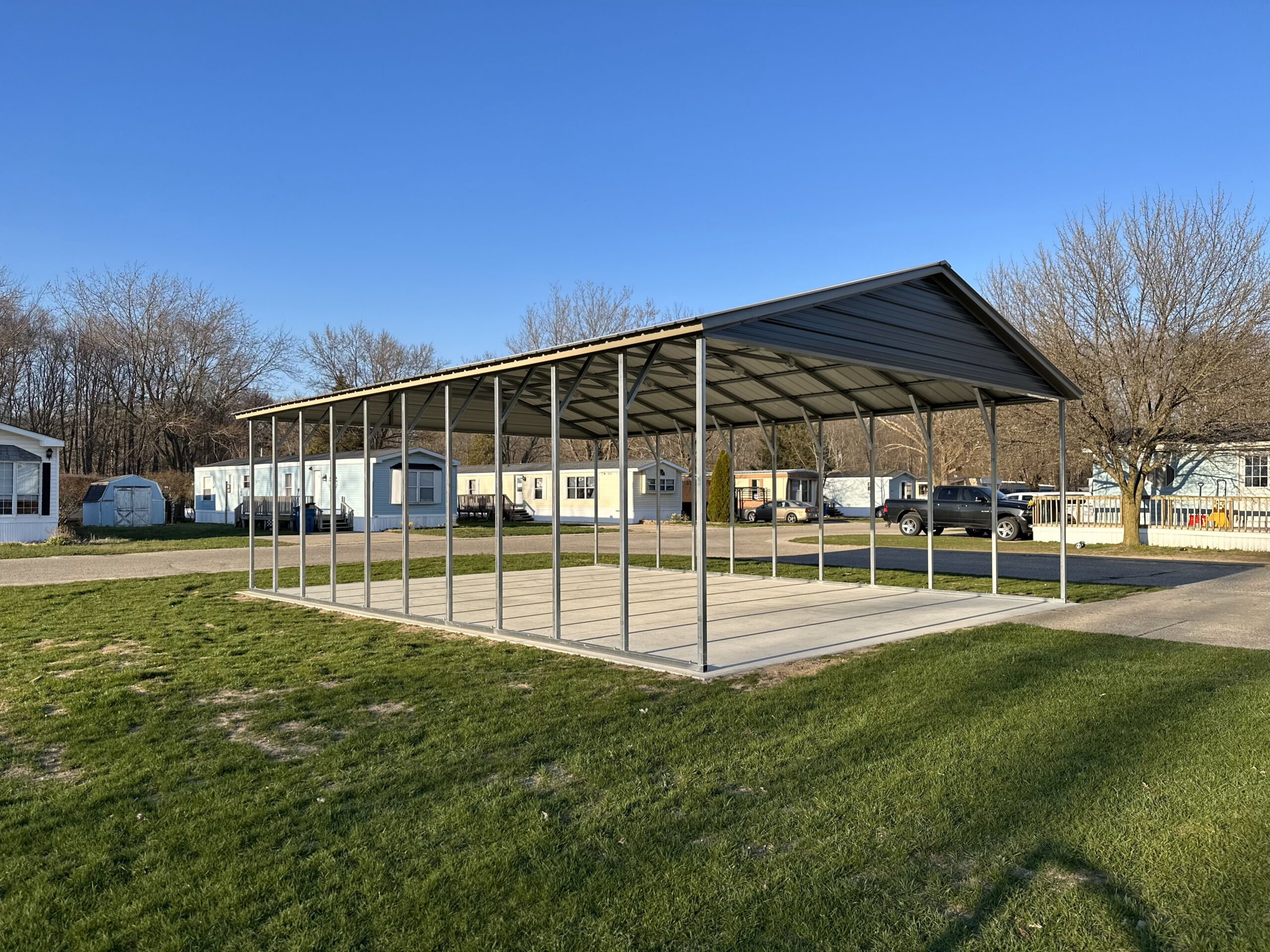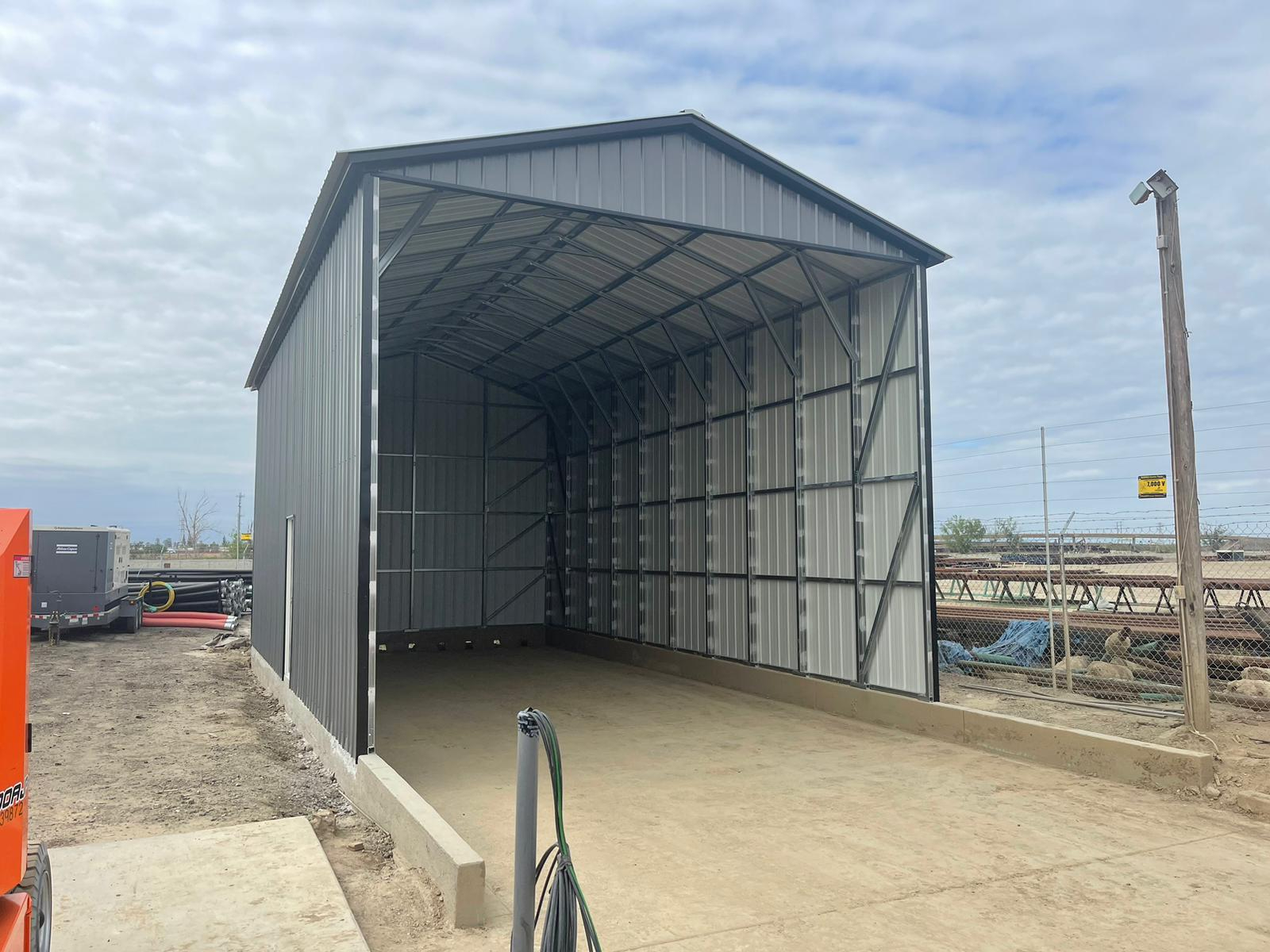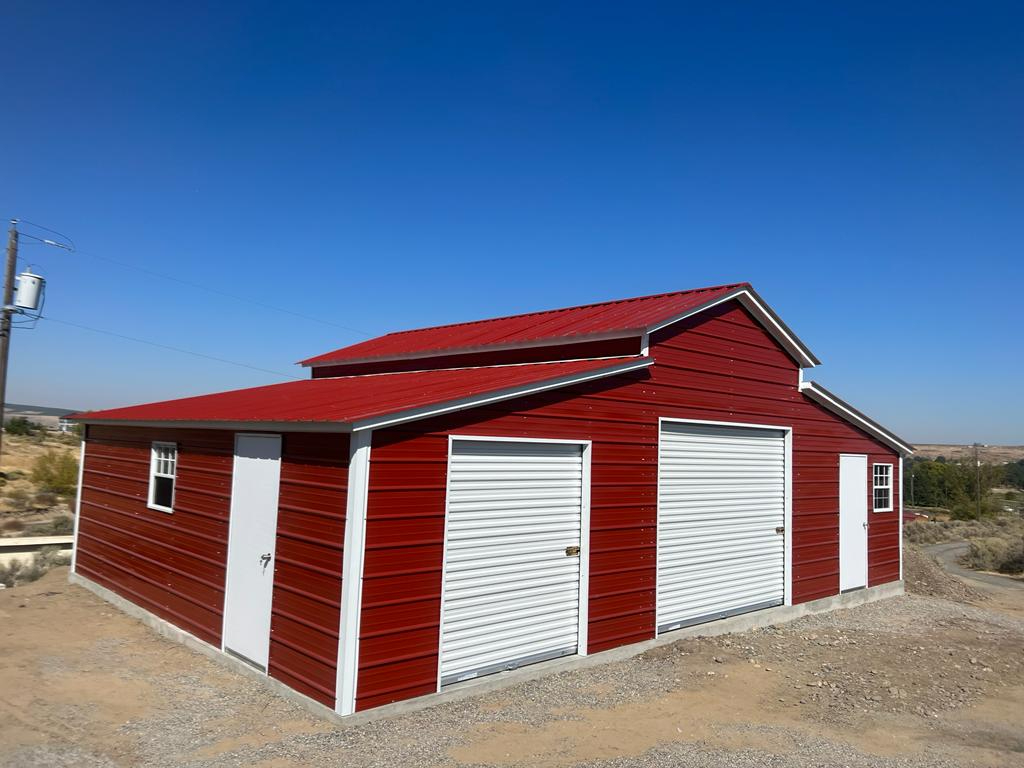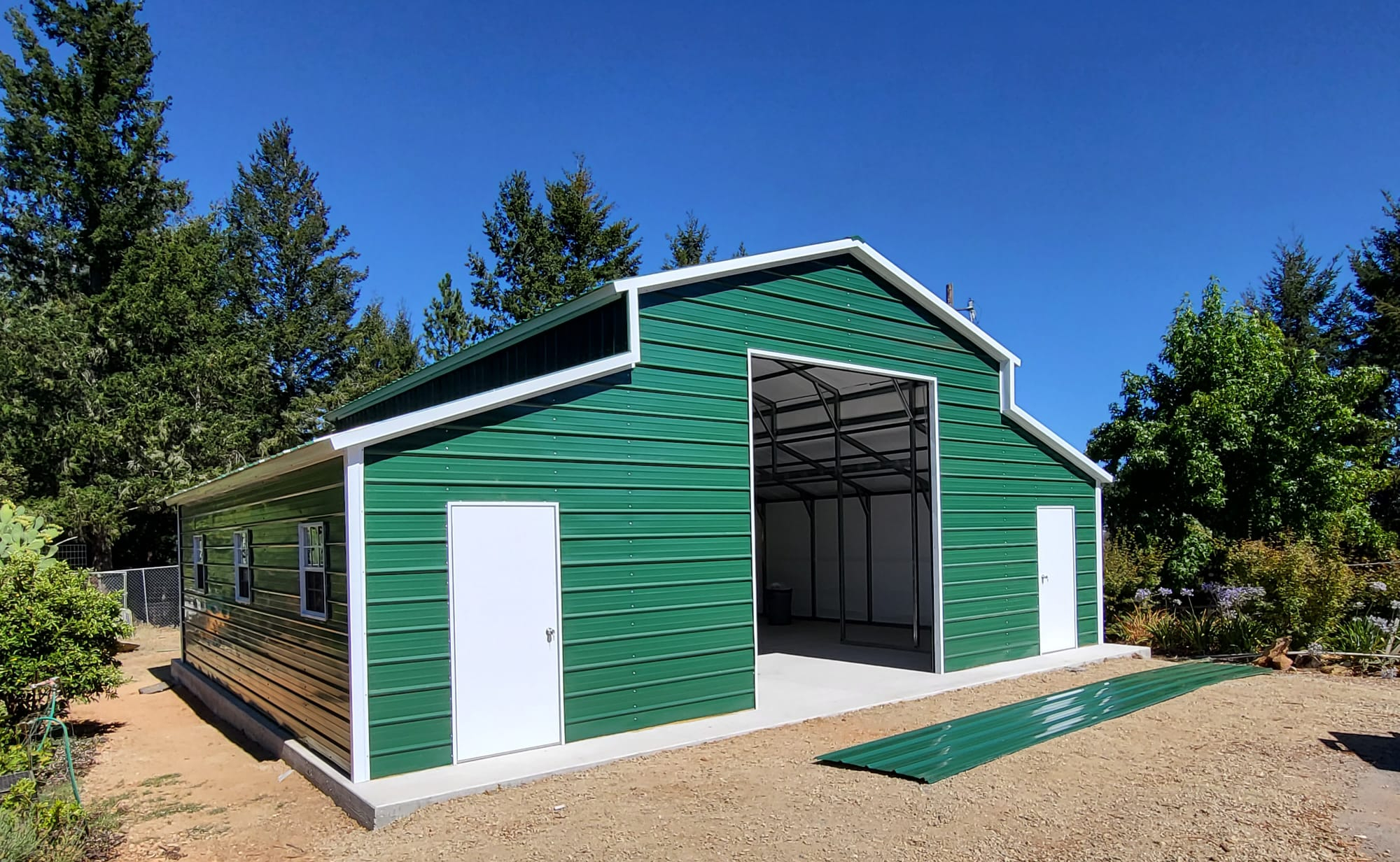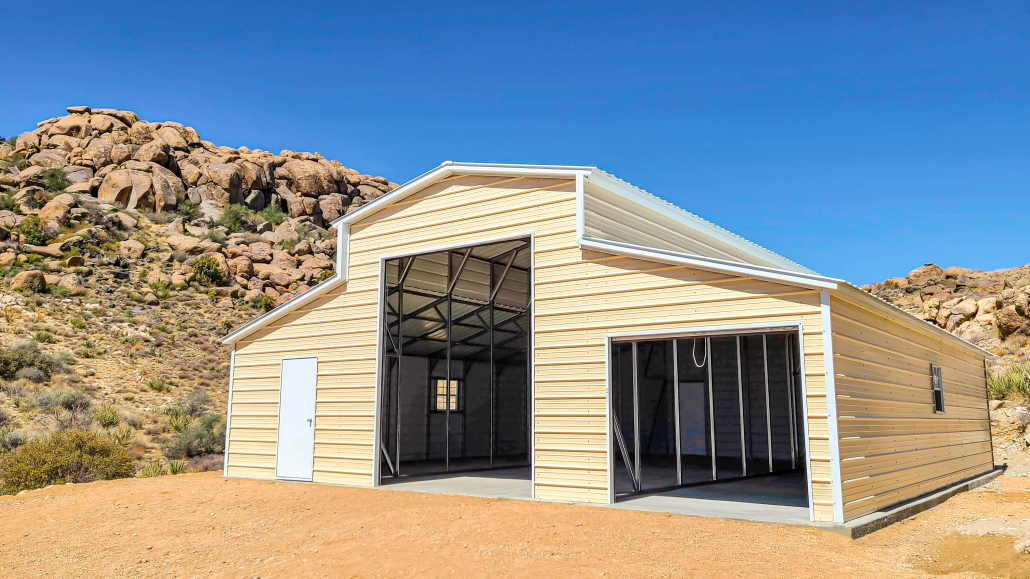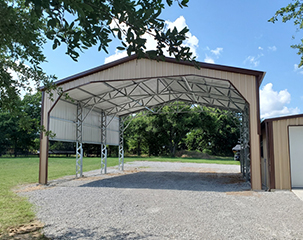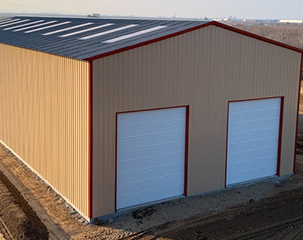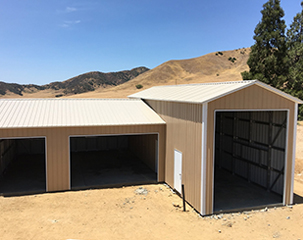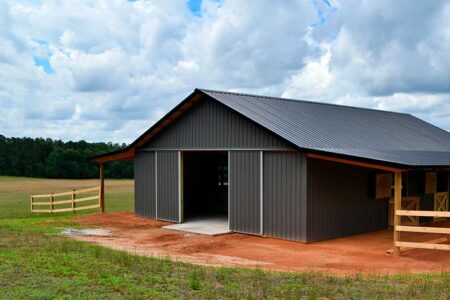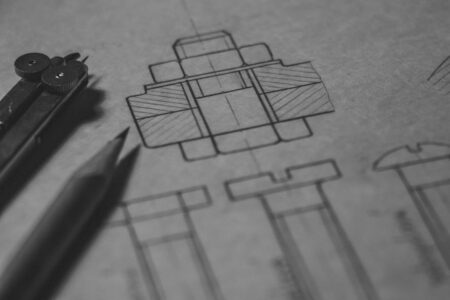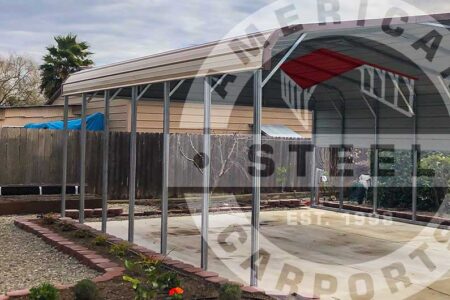Five of the Best Ways to Store Books in Your Garage

Reading is a beloved hobby for millions of people. But if you are an avid reader, you may find yourself facing a particular type of problem: Finding space to store all of your books.
As the shelves inside your home fill up, you may look to the garage for relief. That’s a great idea, but you’ll need to take this step strategically to avoid doing any unintentional damage to the books you love. This article covers how to store books in the garage without damaging them.
But of course, you can’t store books in a garage unless you have a garage available for that purpose! So if you need a new place for your book collection to call home, American Steel Carports, Inc. is the perfect partner for that project. Here, we proudly offer durable, fully-customizable metal structures with financing available to help you get started. Check out our Build & Price tool to see what’s possible, and please feel free to contact us if you have any questions.
#1 – Control Temperature Swings
One of the first things to consider when keeping your books in a garage is the potential for temperature swings. If you have a garage that gets particularly hot during the summer and extremely cold during the winter, your books will struggle to stay in good condition.
Fortunately, you can mitigate this issue with proper insulation. If you take the step of insulating your metal garage, you’ll cut down on the thermal transfer between the garage’s interior and exterior. As a result, the insulation moderates the temperatures inside, and you avoid shifting hot and cold conditions. Of course, this step alone isn’t enough to protect your books – we have a long way to go on our list – but it’s an important starting point.
#2 – Moisture Is Your Enemy
While managing the temperature in your garage is a crucial baseline for book storage, the battle here is really against moisture more than anything else. If you allow damp air to linger in your garage, the pages of your books will inevitably be damaged. In the best case, they’ll curl up around the edges, reducing their visual appeal and making them a little harder to read.
That’s just the best-case scenario, however. A worst-case outcome would be the development of mold and mildew, which is certainly possible when the pages of a book come into contact with a humid environment for an extended time. If you live in a climate with excessive humidity, you may find that mold multiplies, thus destroying your collection.
Mold is also a particularly significant problem in garages because there typically isn’t much sunlight to fight back against the mold. Mold loves to grow in damp and dark spaces, so those books you have tucked away in the back corner of a humid garage are just asking to be visited by this type of organic growth. While it might be possible to recover some books with minor mold or mildew damage, some may become unreadable after this event.
So, what can you do about it? As a starting point, consider using a dehumidifier in the space. Most likely, you’ll only need to use this device during the humid part of the year – which will probably be the summer or late spring. In the winter, when the natural humidity is lower, you can probably turn off your dehumidifier and give it a break.
#3 – Defend Against Critters
As much as we might not like to think about it, there is always the chance that some curious little critters will make their way into your garage. Whether it’s mice, rats, or some other furry pest looking for a snack, you need to make sure your books are protected from the possibility of a small animal chewing on the pages and destroying a part of your collection.
The obvious starting point is to ensure your garage is as well-sealed as possible. If there are small gaps around the doors or elsewhere, it will be easy for critters to slip inside. Remember that many pests don’t need much space, so pay attention to even small holes in the exterior, especially those along the ground. You can use caulking, spray foam, and other products to effectively seal up gaps and make it much harder for critters to cause you any problems.
In addition to cutting down on access points for small animals to get into the garage, you can also make it a less desirable place for them to visit. These critters are always after a meal first and foremost, so don’t leave anything in the garage they’d like to eat. Keep it neat and tidy, don’t store bags of garbage in this space, and ensure any food items kept in the garage are well-sealed inside plastic to prevent access. When there is nothing to eat inside a garage, you will likely find that any critters in the area will move on to look for other places to dine.
#4 – Consider Plastic Tubs
Plastic tubs are one of the best options for book storage in a garage. Of course, this is not as convenient for book access since they’ll be stacked in bins without the ease of access that a shelf offers. However, if you have some books that you want to keep but don’t need to access regularly, this is an ideal solution. Here are a few of the many benefits of using this technique.
It’s affordable
Plastic bins are easy to acquire and relatively inexpensive, so you can quickly build up a collection that can house your books and anything else you might need to store safely.
Make great use of space
Once loaded up, you can easily stack these tubs to get the most possible storage out of your available space. If possible, stick with one size and style of bin. This way, they nest nicely on top of one another and remain stable even if they get jostled around a bit.
Keep the books clean
Garages tend to be dirty and dusty, so putting your books in plastic bins with lids will keep them clean no matter how long they are stored. That way, when you are ready to use them again, you can pull down one of the bins and start reading immediately with no cleanup.
Critter defense
We mentioned the critter problem above, and bins are perhaps the best way to ensure that you don’t have any issues with rodents chewing on your books. With the books safely and soundly tucked away in a suitable plastic bin, mice and rats will be locked out, and you won’t have to worry about any surprise damage showing up later.
Tips for choosing the proper bins
If you use plastic bins for book storage, it’s essential to consider the weight factor in this equation. Books are heavy, especially when you gather them into boxes or storage bins. The best solution here is to choose relatively small containers so only a modest number of books fit in each one. That way, even a full bin won’t be too heavy to handle, and you can still move it around easily. On the other hand, if you opt for big containers, you might spend some time packing one up carefully – only to find that you can’t even lift it when you are finished.
Another note on plastic bins relates to the shelves you place them on after you pack them up. Again, it’s a weight issue here, as stacking up several plastic totes full of books on an old shelf could be a recipe for disaster. Always be sure that the shelves you are using are up to the challenge of the weight you add to them and consider simply stacking the bins on the floor if you don’t have strong enough shelving for this job.
#5 – Keep Light Low
You’d like to avoid exposing your books to too much direct, natural light. Unfortunately, when the sun beats down on your books, it can damage their condition and degrade them over time. So, books kept near the front of a garage with frequently open doors will be at risk of damage during the sunny parts of the year.
We mentioned how damp and dark conditions could be a recipe for mold growth in books, but it’s important to note that both conditions need to be present for mold to grow. So, there is no risk of storing your books in a dark place as long as it is sufficiently dry. Perhaps the best possible situation would be to have your books collected in plastic bins and then stored near the back of the garage, in a corner that rarely sees the light of day.
American Steel Has You Covered
We hope you enjoyed this guide on how to store books in the garage! It would be a shame to get rid of some of the books you’d like to keep just because you run out of storage room on your property, and a detached metal garage is an affordable and convenient solution to this problem.
Get in touch with American Steel Carports, Inc. today to get started on this exciting project! Or, if you’re looking for another solution to your book storage problems, read our blog on how to build a library shed.
Remember to explore our free Build & Price tool when you’re ready to start building your dream garage. Thanks for stopping by our blog; we hope to help you soon!

